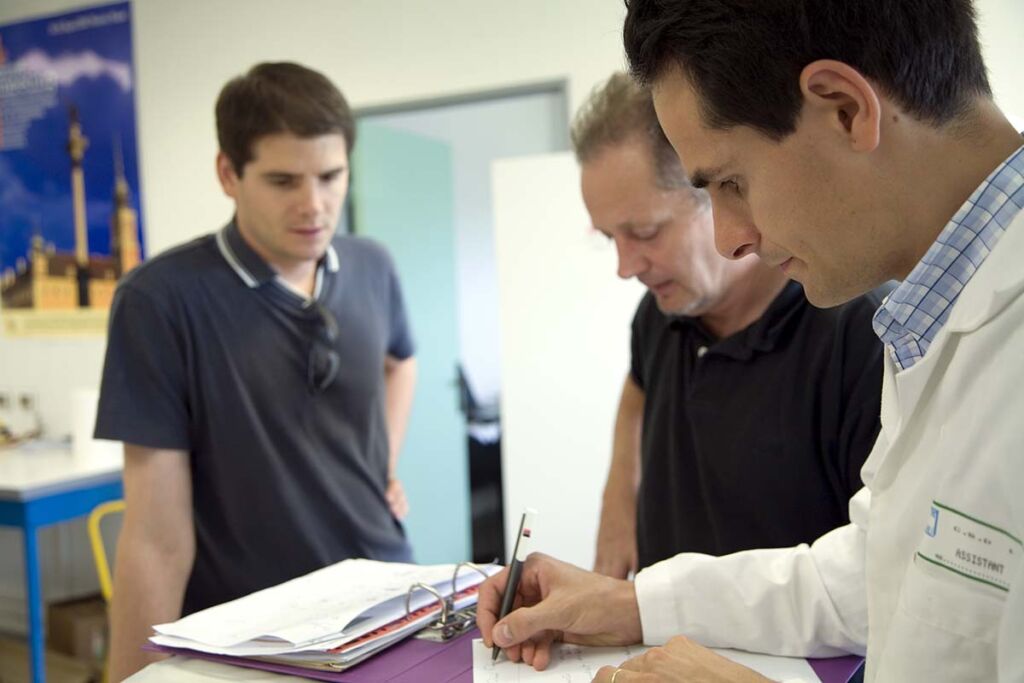Choose the UM establishment diploma
Every year, the University of Montpellier offers over 500 different degrees. A rich and varied offer, but not always clear to the general public. So what is an institutional diploma? Who are they aimed at? In what fields and for what purpose? Find out more from Céline Ritterszki, deputy director of the Continuing Education Department at UM (SFC-UM).

University degrees, university diplomas, establishment diplomas, certifications... It's not always easy to find your way through the multitude of training courses offered by today's universities. In addition to national diplomas, such as bachelor's, master's and doctorate degrees, awarded by the French Ministry of Higher Education, Research and Innovation, there is a whole range of diplomas offered by the universities themselves. These are known as Diplômes d'Etablissement (DE), and there are over 500 at the University of Montpellier.
Meeting a specific need
The term "Diplôme d'établissement" encompasses university diplomas (DU) and certifications. Diplôme d'établissement is the generic name given to diplomas voted by the University's Board of Directors," explains Céline Ritterszki, Deputy Director of the Continuing Education Department (SFC-UM). They are promoted by the components with the support of the Department of Training and Education and by the SFC."
Although these diplomas are not nationally accredited, in the case of inter-university diplomas (DIU) they can be awarded jointly by several establishments. In all cases, they offer significant and definite advantages. The originality and interest of an institutional diploma lies above all in its ability to meet a specific, identified need. " It may be a response to a demand from the business world, to a specific regional situation, or to a need for specialization in a targeted field", explains the deputy director. DEs are the ideal breeding ground for the skills-based approach.
A varied and renewed offer
The Faculty of Medicine at the University of Montpellier offers no fewer than 194 establishment diplomas. It is not the only faculty to offer this type of specialization. Some thirty are offered by the Faculty of Law and Political Science, ranging from cybercrime to coastal law. There are also around thirty in management and economics, twenty in STAPS, and others in chemistry, odontology, pharmacy and education. New DEs are created every year, " on the initiative ofProfessors who identify a need in the field or a component that wishes, for example, to train staff in a new legislative framework as is the case with the new data protection regulation [RGPD]."
Some DEs can also be cross-disciplinary. One example is the new " Scientific Data Management" university diploma. Finally, the continuing education department also offers a number of highly targeted courses, such as the DU Technicien Spécialisé en Aquaculture et Aquariologie (Specialized Technician in Aquaculture and Aquariology) and the DU Chef de Projet et d'Exploitation en Aquaculture (Project and Operations Manager in Aquaculture). We've been offering these courses for 39 years, and we're very proud of them," says Céline Ritterszki. These DU programs take place at the Station Méditerranéenne de l'Environnement Littoral in Sète , in a sector that is at the heart of the MUSE (Nourrir, Protéger, Soigner) strategy.
Formulas tailored to active audiences
Another key feature of DE programs is their target audience. Accessible at various levels of study, they can be taken in addition to a conventional university course, but their preferred target audience is the working public: employees, self-employed professionals, jobseekers... wishing to specialize or to return to or reorient their studies. Good to know: the Continuing Education Department has also been accredited as a training organization, enabling it to use the personal training account(CPF).
With this in mind, the school diplomas offered by the SFC are generally short courses organized according to a timetable adapted to active audiences. "It' s possible to train one week a month or one day a week. Other diplomas, such as the DU Club Management which is 100% e-learning," concludes Céline Ritterszki. With the University of Montpellier, you'll be able to adapt to all professional agendas and satisfy all desires to find the degree that's right for you.